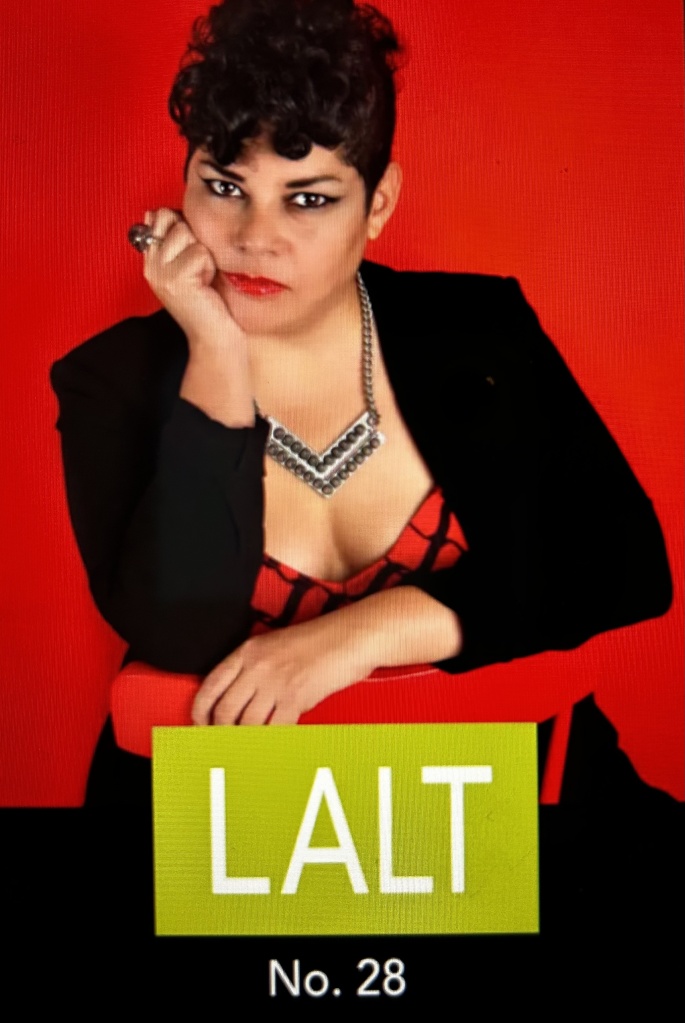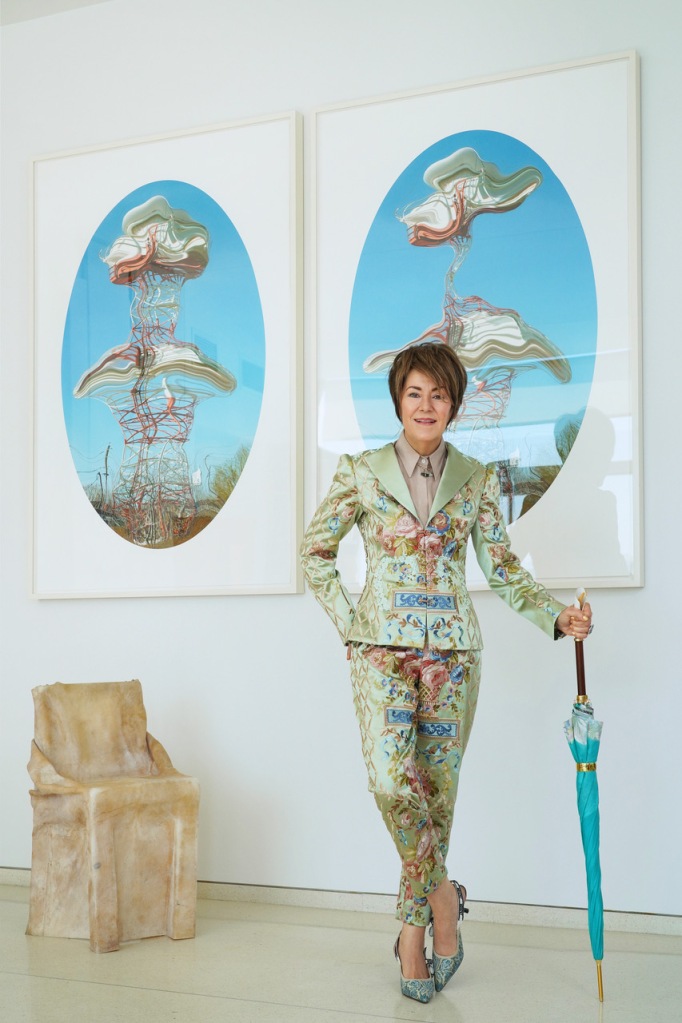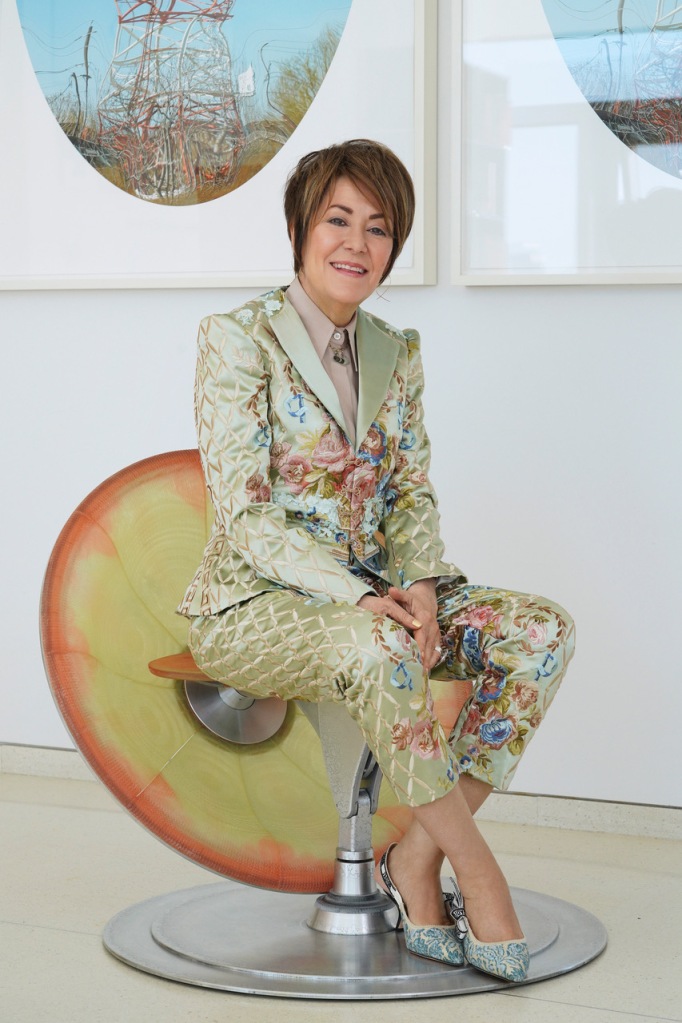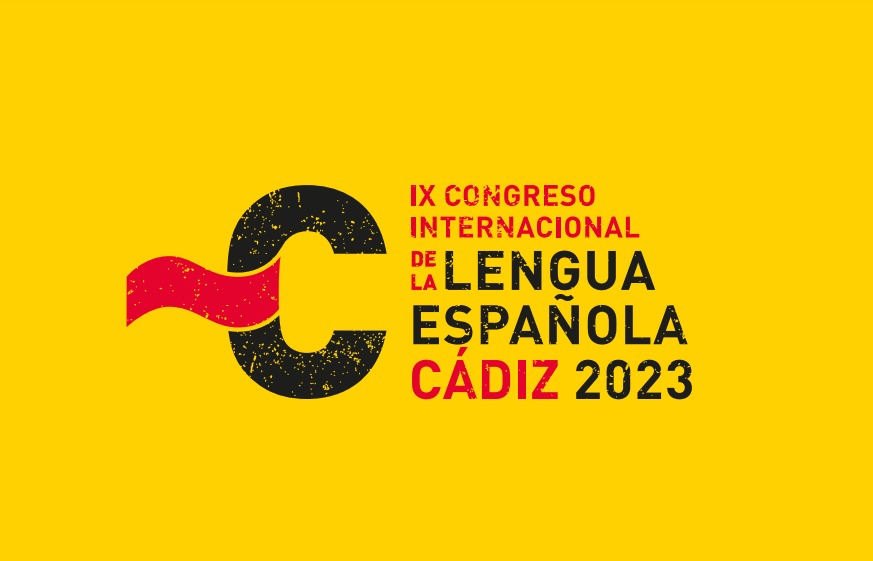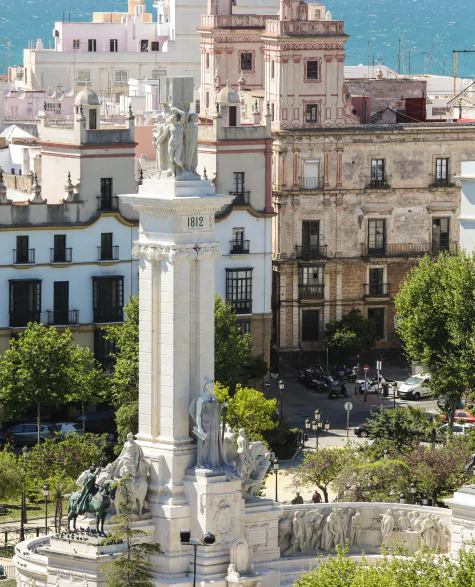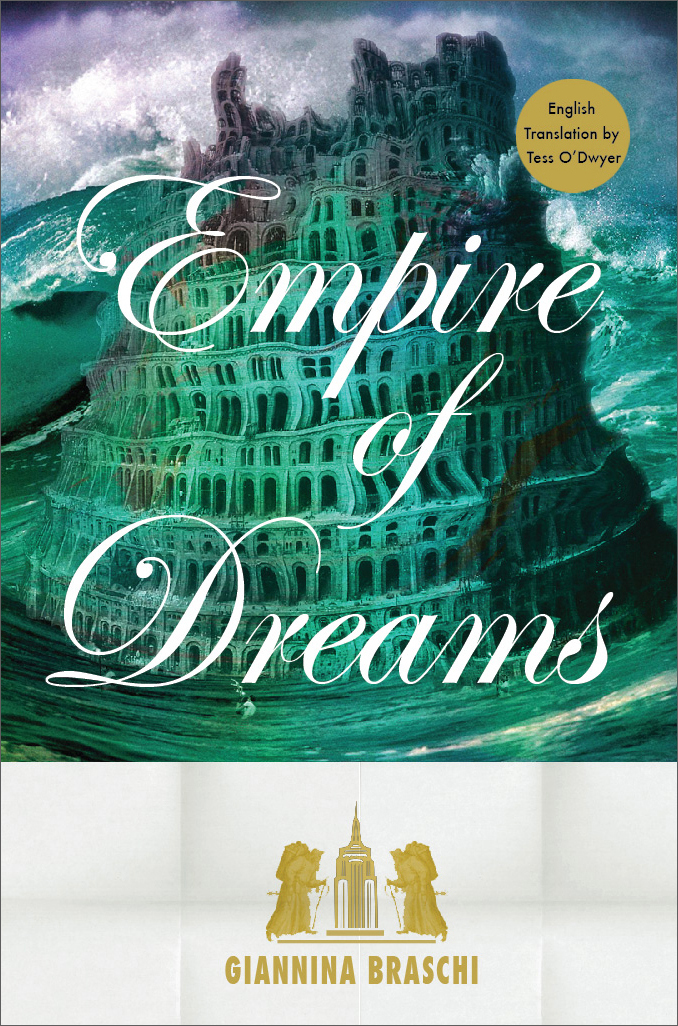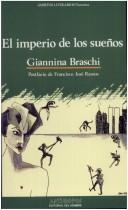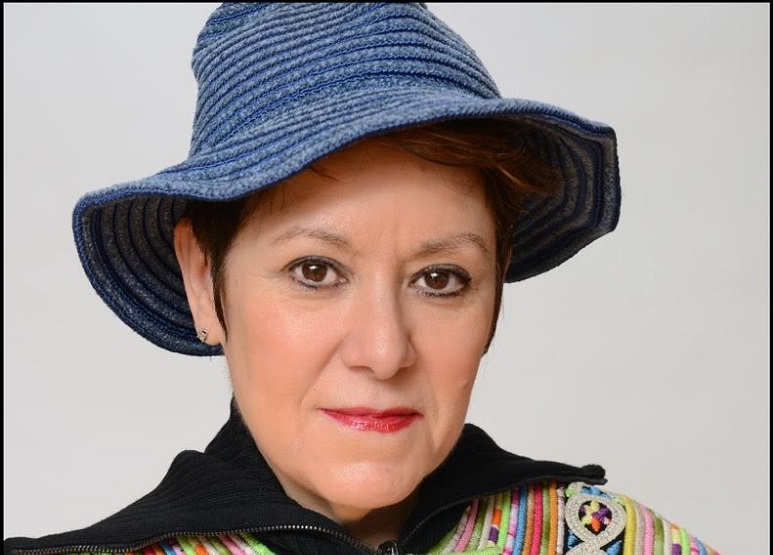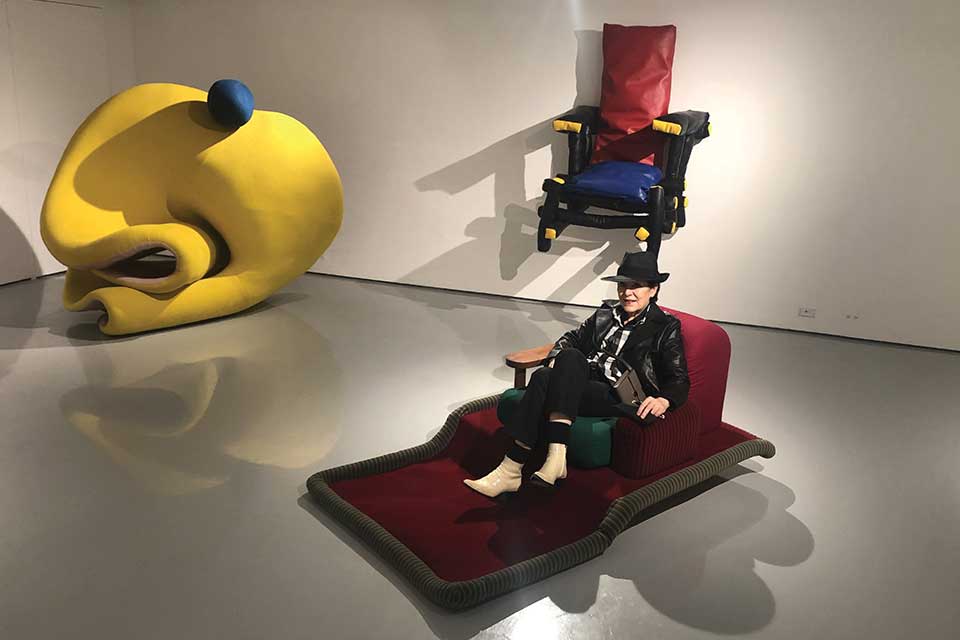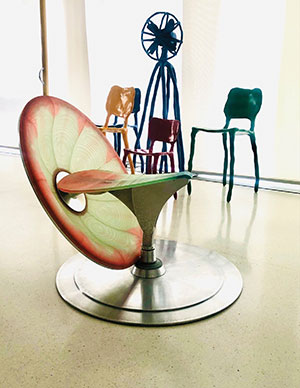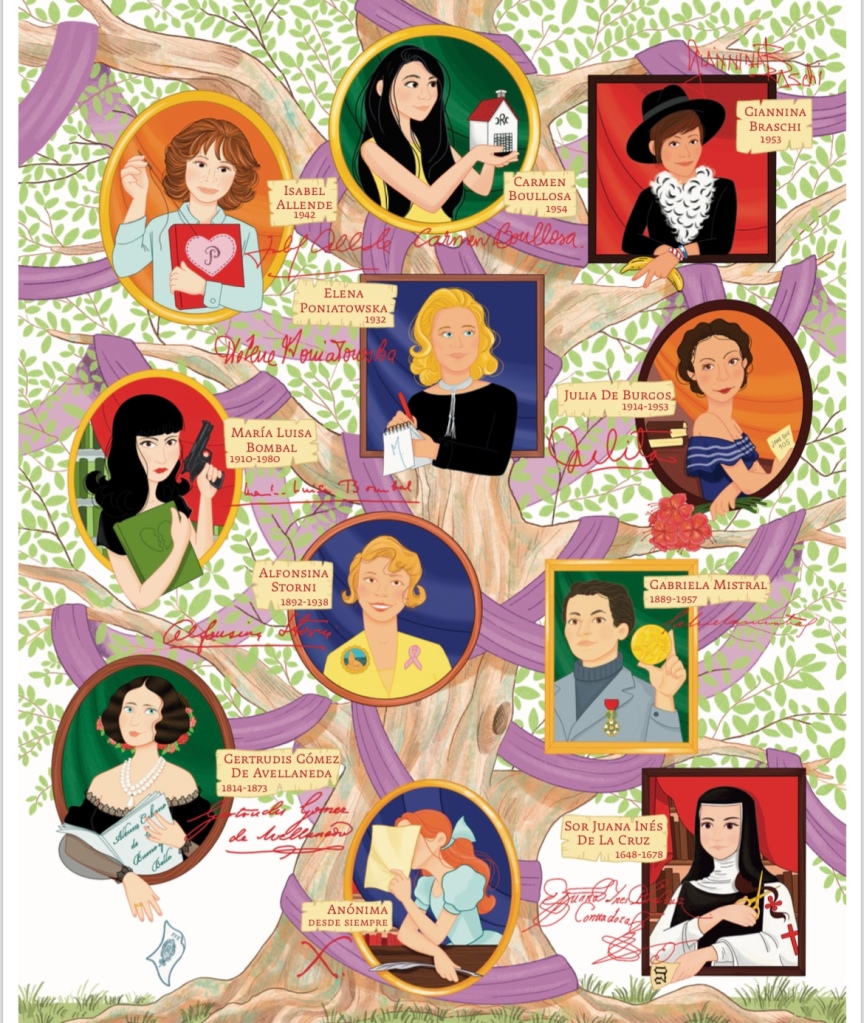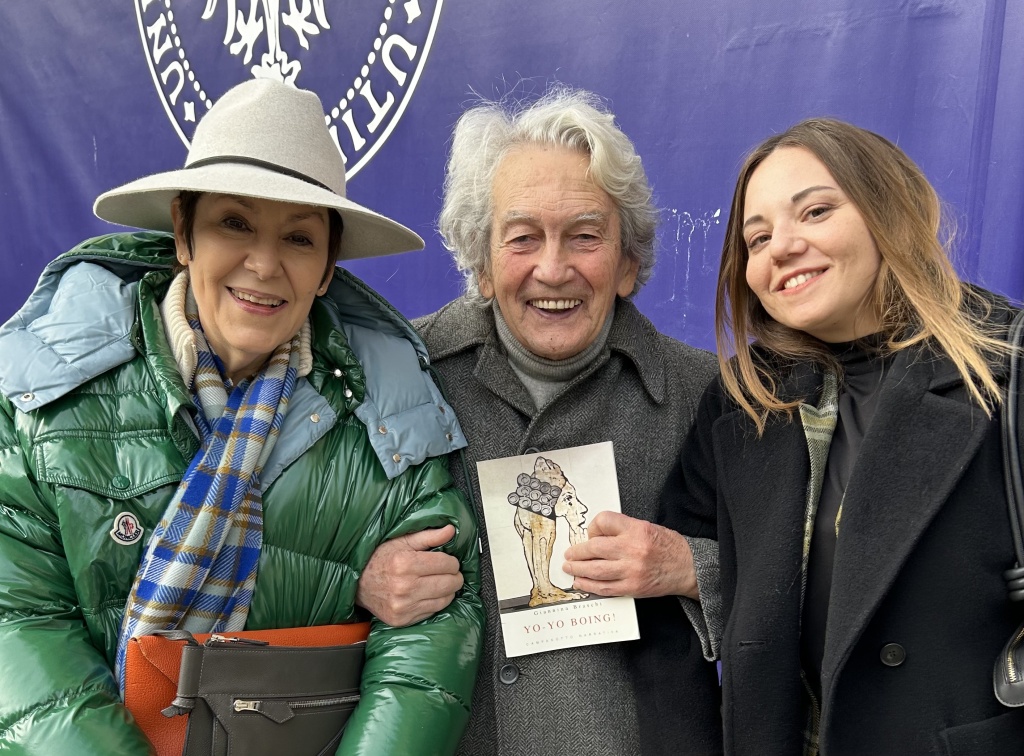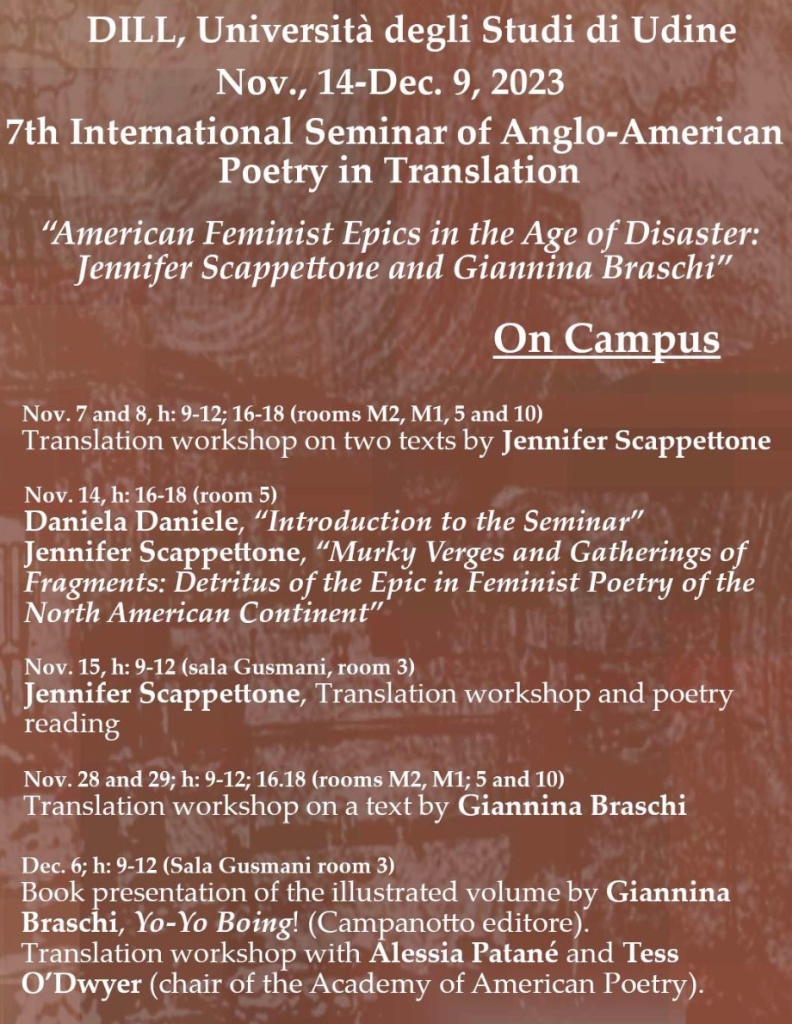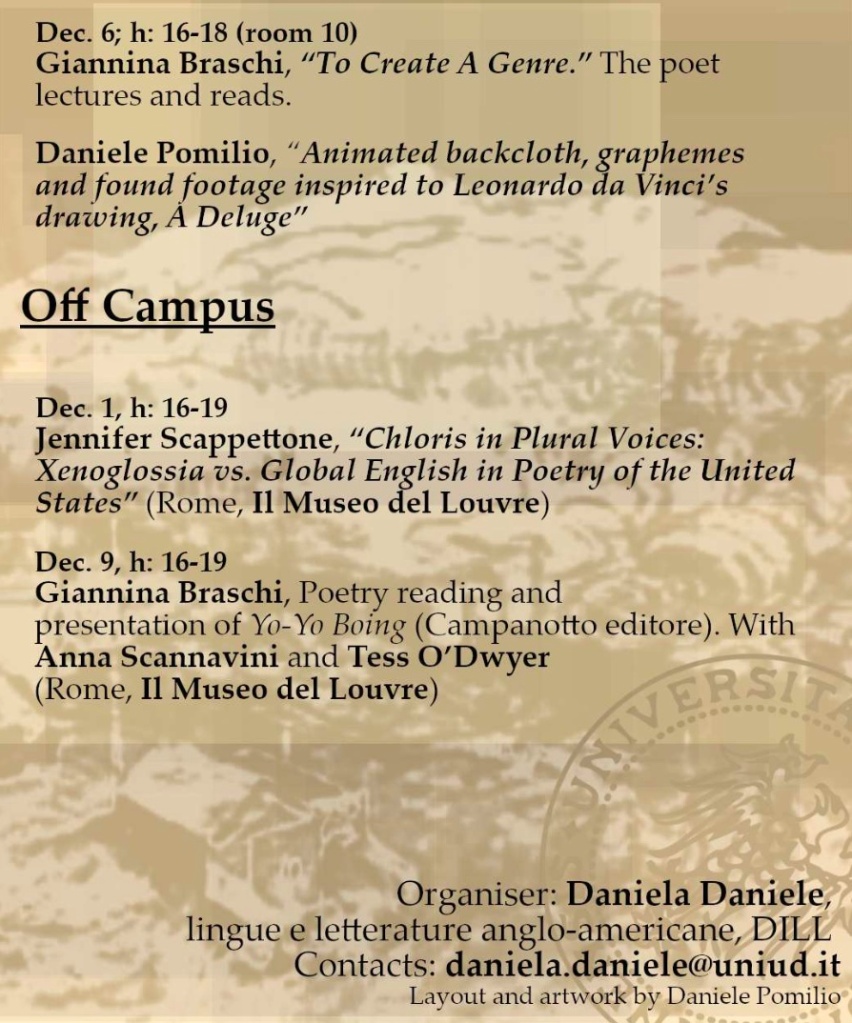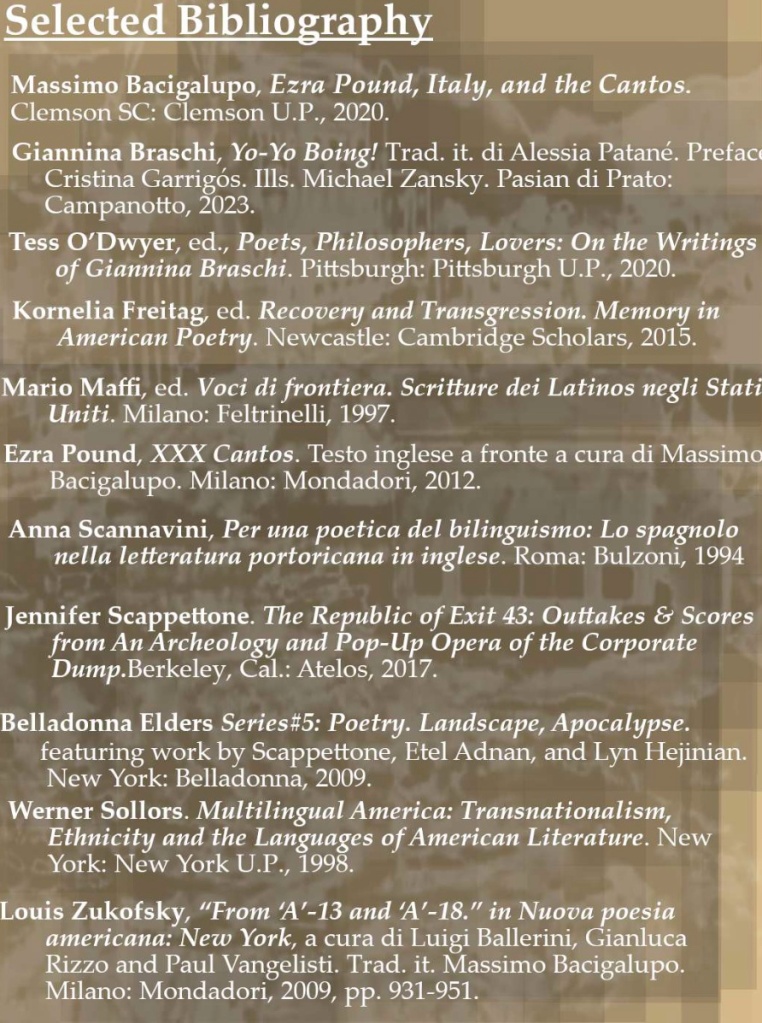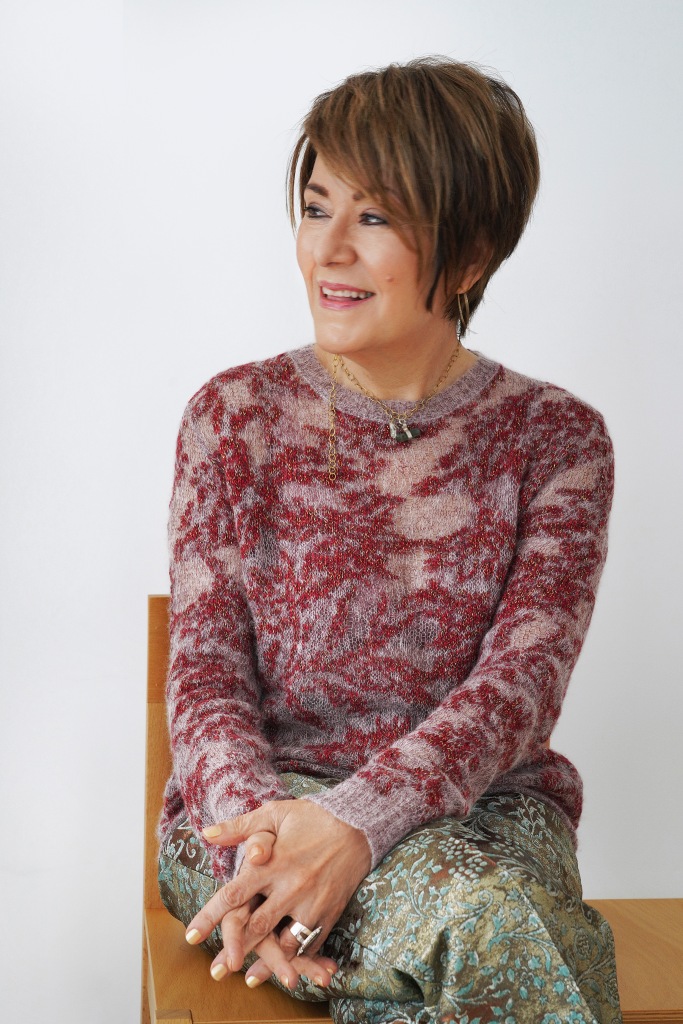LATIN AMERICAN LITERATURE TODAY
DOSSIER: GIANNINA BRASCHI
DOSSIER GIANNINA BRASCHI

Love for Life: Notes on Giannina Braschi and United States of Banana

Giannina’s Doorknobs
by Sarah Ahmad

Giannina Braschi’s Genealogy

Medician Stars
Medician Stars
LATIN AMERICAN LITERATURE TODAY
December 2023
Universities are currently immersed in a crisis of the humanities. They say nobody wants to read anymore. And, clearly, this is so. But I’ll correct the sentence: nobody wants to be forced to read. Reading is always a voluntary act. The reason for this is simple: literature is not a profession, although it can be professionalized; it is not work, although its writing implies a great deal of work. It is not born out of literature courses, although it is taught at high schools and universities. In reality, literature is what gets us into trouble, what makes us different from one another and refutes the identical, a way to understand that which escapes us. When we find ourselves trapped in discourses of unitary thought, literature “speaks” to us, in order to keep the fish that swim upstream from getting netted by the same old boffins, with their plaster words and cardboard teachings. Something is missing and something is there in excess, without a doubt. Perhaps we might cross the street and dare to look back at this photograph, frozen on the walls of time, from the other side of the pavement..
To dare, to listen to that other voice, to reach the other shore. In other words, to break free.
And if anyone dares and transgresses, it is Ecuadorian writer María Fernanda Ampuero, our featured author is this issue of LALT. Her vision of reality is anchored to extremes. She doesn’t hide it. Ampuero has mastered a literature that digs through the most despicable aspects of life, those we prefer not to see. Both a writer and a journalist, she currently lives in Spain, but Ecuador is ever-present in her writing. Her books are rich with horror; it is a personal interest of hers, an obsession. Horror, in her writing, is more than a literary genre. Mistreated women (and little girls, in particular), immigrants, and many other characters typically ignored by the world appear in her stories as victims of an everyday, sometimes unbearable violence; her voice narrates the unutterable. María Fernanda made herself known internationally in 2018 with her book of short stories Pelea de gallos (translated to English by Frances Riddle as Cockfight). Although it was not her first book, its brutal stylings did not go unnoticed by Latin American critics. The results are visible today. This feature’s guest editor is Ecuadorian writer and journalist Issa Aguilar Jara, and it includes writing by Natalia Andrea Mera and Rosalía Vázquez Moreno. We owe this issue’s cover feature to this trio of young writers.
This issue’s second dossier highlights the work of writer Giannina Braschi, Puerto Rican by birth and a New Yorker by adoption. Without the drive of our friend Tess O’Dwyer, this project would never have come to fruition. Tess compiled these materials and brought together this dossier’s contributors. As Manuel Broncano rightly tells us, Giannina Braschi can be seen as “a Nuyorican poet, a Latinx philosopher, a postmodern novelist, a social satirist, a magical realist, a feminist, a post-dramatic playwright…” and many other things besides. Braschi, like all those who master an unclassifiable style of writing, is all these things and none of them at once. We will let our readers decide if these varied titles fit or not when it comes to understanding her writing. In this dossier, our readers will find writing by Broncano along with Nuria Morgado and Sarah Ahmad, as well as an excerpt from Putinoika by Braschi herself.
Our interview section is chock full of top-shelf new releases. Pablo Concha interviews Spanish writer and translator Javier Calvo, who just published a remarkable translation of the letters of legendary U.S. writer and master of horror, H.P. Lovecraft, titled Cartas I, de H. P. Lovecraft (Editorial Aristas Martínez, 2023). Colombian writer and journalist Juan Camilo Rincón interviews Argentine writer Eduardo Sacheri on his latest novel, Nosotros dos en la tormenta (Alfaguara, Argentina). The last interview is my own, and it’s something special: a conversation on the new edition of the biography of Fito Páez, titled simply Páez, republished this year by Cerdos & Peces. I spoke with Vera Land about the past and present of Argentine rock and everything else we find in this book first published in 1995 by Vera Land and legendary cultural journalist Enrique Symns. Páez, Fito’s biography, is now in bookstores for fans of rock en español and handmade cultural journalism.
In this issue, our collaboration with World Literature Today is twofold. First, because our section on literature from other parts of the world includes several pieces from our sister magazine. The first is by Veronica Esposito, who studies three Latin American women writers: Guadalupe Nettel, Samanta Schweblin, and Mónica Ojeda. Three unique cases, for sure. If these writers “find resonance and meaning in the realms of horror, the political, and bodies,” as Esposito writes, “it is perhaps because they are in touch with something basic about being a woman in the early twenty-first century.” It is up to us to delve into these new literary endeavors and discover what they have to offer. Another article in this section is by friend of the magazine Michelle Mirabella, who writes, almost as a war correspondent, about Gato Caulle, a community-minded bookstore at the far south of the American continent in the Chilean city of Valdivia. Finally, Kevin M. F. Platt and Mark Lipovetsky talk with poet and prose writer Maria Stepanova, renowned author of In Memory of Memory. In these times of war and desperation, Russia and its writers have a great deal to say. WLT is also present in our Indigenous Literature section. WLT’s ninety-seventh issue (No. 5, September 2023) was dedicated to the indigenous literatures of the American continent. Our selection in this issue of LALT includes Quechua poet Fredy Chikangana from the Yanakuna Mitmak nation of southeastern Cauca, Colombia, along with Cruz Alejandra Lucas Juárez of Tuxtla, Zapotitlán, who writes her poems in Tutunakú and Spanish, and Miriam Esperanza Hernández Vázquez of Masojá Shucjá, Tila, Chiapas, a poet, translator and Ch’ol language activist. This issue of WLT naturally resonates with the digital pages of LALT, where we have promoted the varied indigenous literatures of our continent since the magazine’s inception. One important note on a new collaboration: these texts from WLT were translated by students of the Residency in Literary Translation directed by professor Daniela Bentancur as part of the English-language translation-training program of the Instituto de Enseñanza Superior en Lenguas Vivas “Juan Ramón Fernández” in Buenos Aires, Argentina.
Speaking of poets, this year U.S. publishing house Seven Stories Press released a new edition of Stories and Poems of a Class Struggle by Salvadoran poet Roque Dalton. Here, LALT, presents a preview of nine poems from this new volume. Dalton’s currency, we are happy to note, has not decreased by even a millimeter. Just read his poem “Poeticus Eficacciae,” cited below. It still retains all its freshness and its troubling truthfulness; it is still a perfect lesson in understanding the function of political literature in these times when our polarized Latin America struggles to lift its weary head:
You can judge
the moral fiber of a political regime,
a political institution
or a political man,
by the degree of danger they consent to
by way of being observed
through the eyes of a satirical poet.
As ever, watch out for the poets. Every republic has its Plato.
Where translation is concerned, don’t miss this issue’s brief essay by Australian translator Lilit Žekulin Thwaites in memory of one of the world’s best-known translators of Latin American literature: Edith Grossman, who passed away this September in New York City. Her list of translation credits includes Gabriel García Márquez (who, as is well known, described her as his voice in English), Mario Vargas Llosa, Mayra Montero, Ariel Dorfman, Sor Juana Inés de Cruz, and Carlos Rojas, among others. We hope this note serves as recognition of and testament to her legacy.
With this edition of LALT we close out the year, having published twenty-eight issues with no interruptions. Thus, with this entirely free and almost impossible gesture, we affirm that literature still exists (we hope to prove this), but we must not deceive ourselves. Literature could also cease to exist. We know this to be true; Kafka put it well when he claimed we would still be happy if we didn’t have books. The fact is, Kafka knew some books are dangerous, whispering into our ear the master plan with which to escape from the scripts of prefabricated life, to overcome the lies with which children are forced to put on the long trousers of defeat. That blow that awakens you to life, from the pages of a book, is well worth it. All of which reminds me that literature, in the end, is for those who break free, those magical travelers of the human imagination, those who know there is a street that is not two-way: that the only path forward is getting lost, taking pause, awaiting a miracle.
GO TO NEW WEBSITE: GIANNINABRASCHI.COM

